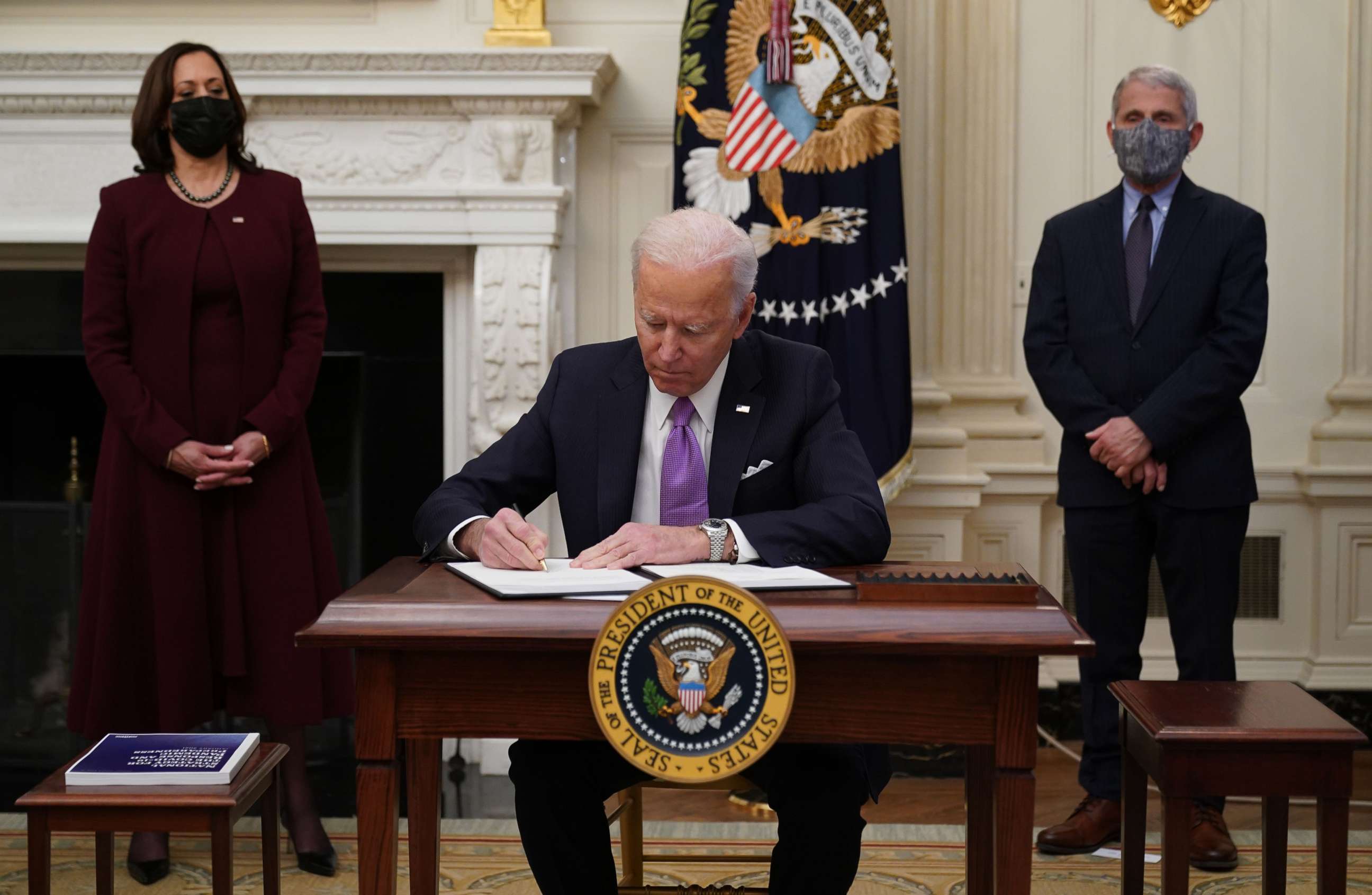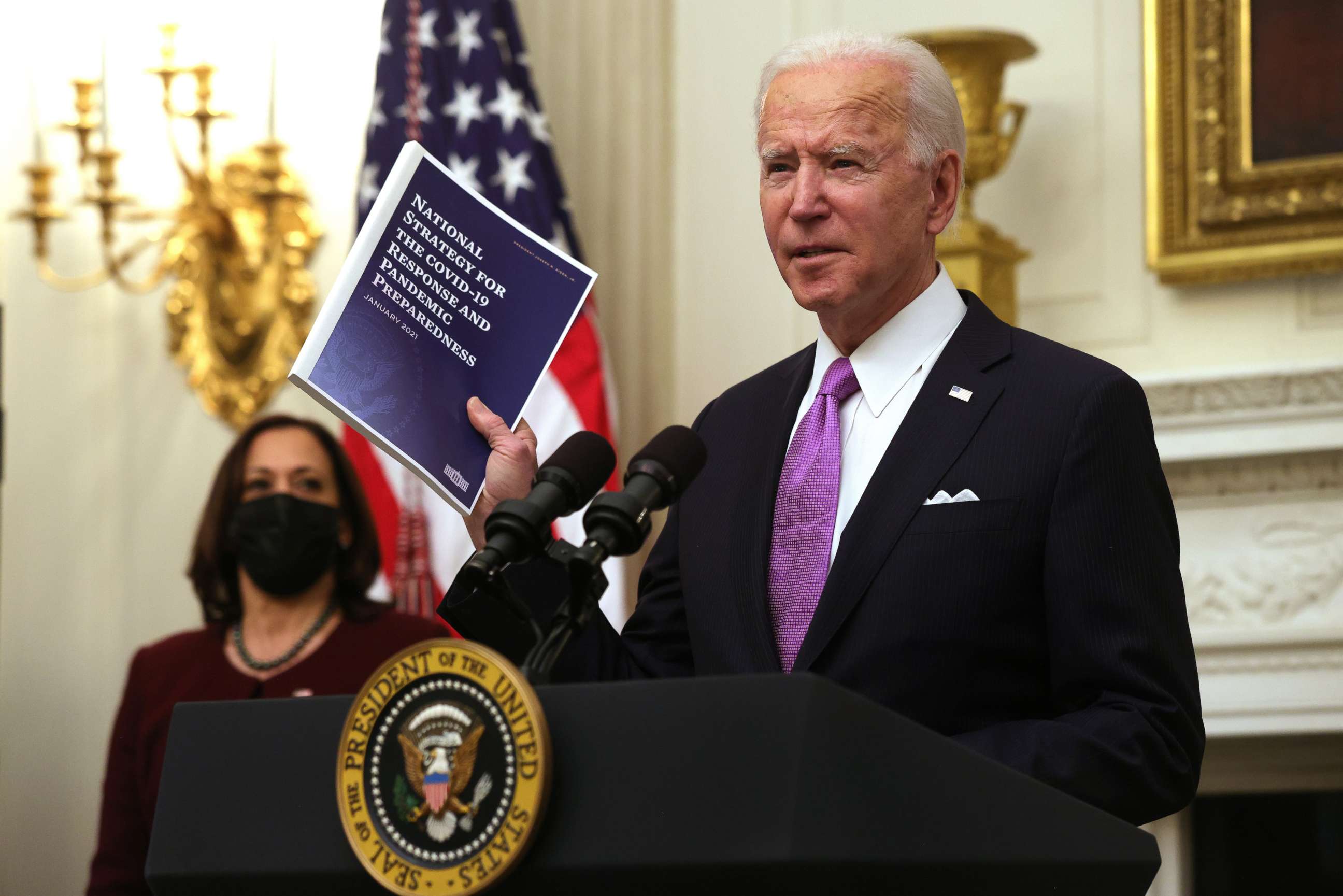Biden executive order takes steps to require federal contractors pay $15 minimum wage
The order is among many executive actions taken in his first days in office.
President Joe Biden plans to sign a pair of executive orders Friday aimed at expanding food assistance for tens of millions of Americans and launching a process that will require federal contractors to pay their workers a $15 minimum wage and provide emergency paid leave.
The moves come on Biden's second full day in office, and continue a string of executive actions he's taken to jumpstart his agenda and set the tone for his administration amid a COVID-19 pandemic that has left families struggling economically.
"We're at a precarious moment in our economy. We saw again today 900,000 new claims for unemployment insurance, another week at a level above any week during the Great Recession," White House National Economic Director Brian Deese said on a call Thursday night previewing the orders. "More than ...10 million Americans are out of work, 14 million Americans are behind on their rent and nearly 30 million adults and as many as 12 million children are experiencing food insecurity."
Biden plans to sign an executive order that will expand protections for federal workers, including putting federal agencies on a path to require a $15 minimum wage for contractors.
But that minimum wage won't come right away. Instead, Biden plans to direct the federal government "to start the work that would allow him to issue" an order "within the first 100 days" that would require federal contractors to pay at least $15 per hour, according to the White House.

The eventual executive action would also provide emergency paid leave to workers, the White House said.
The order Biden plans to sign Friday will also restore collective bargaining power and other protections to workers by revoking several of former President Donald Trump's executive orders.
The actions echo policy steps Biden advocated on the campaign trail, and were included in the joint recommendations from the Biden-Sanders unity task forces created shortly after Biden secured Sen. Bernie Sanders' endorsement in the 2020 race.
It will also reverse a move Trump made in October to reclassify a portion of federal workers in a way that made them easier to fire by the politically appointed leaders of agencies, the White House said. The order will eliminate "Schedule F," the name of the classification that Trump's order created.
Biden also plans to sign an additional order asking various agencies to take action during the pandemic to increase federal food assistance programs, and assist families in receiving economic aid they qualify for during the pandemic.

Biden's executive order would address the 29 million Americans struggling with hunger by asking the Department of Agriculture to expand food assistance for school children missing meals due to school closures by 15%, increase emergency SNAP benefits to the lowest income homes in the country and revise the amount of benefits provided by the program to better cover the cost of a healthy diet, according to the White House.
Biden will also ask the Treasury Department to ensure all Americans receive their direct stimulus payments by creating an online tool to allow recipients to claim the payment, and ask the Department of Labor to clarify rules for federal workers to allow them to apply for unemployment insurance if they refuse a job due to health concerns.
The order will set up coordinated benefit delivery teams to work with small businesses and workers to navigate how to receive benefits available to them through state and federal resources as well.
Deese stressed that the actions Biden planned to take would offer some assistance, but were far from comprehensive, urging Congress to pass Biden's ambitious $1.9 trillion COVID stimulus package he introduced last week.
"We hope that Congress will move quickly to consider this important plant," he said. "But ... the American people can't afford to wait. And so many are hanging by a thread, they need help, and we are committed to doing everything we can to provide that help as quickly as possible."




